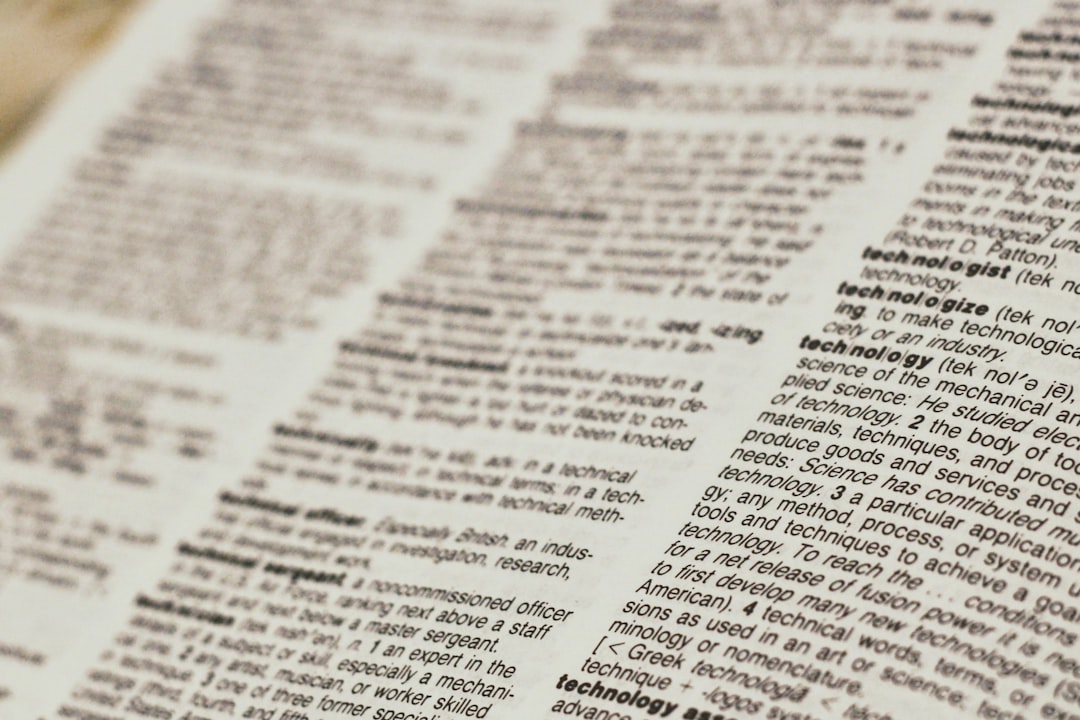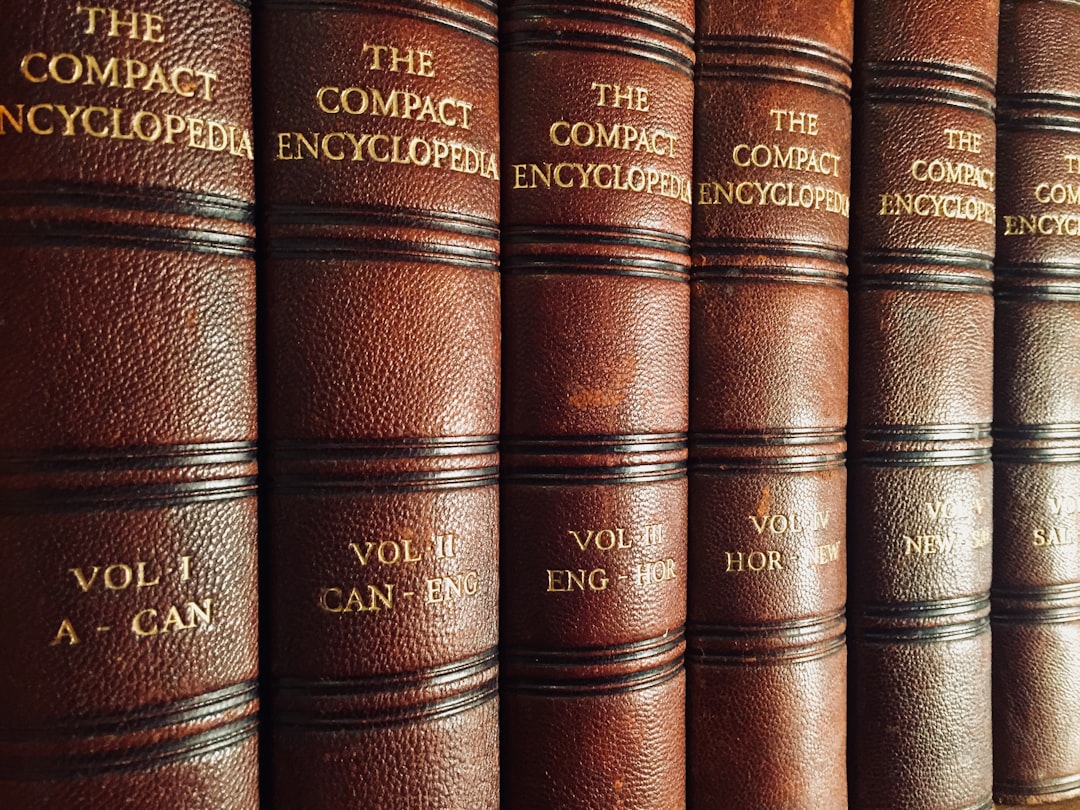Dictionary vs. Encyclopedia
What's the Difference?
A dictionary and an encyclopedia are both reference books that provide information on various subjects, but they differ in their scope and purpose. A dictionary is primarily focused on providing definitions, spellings, and pronunciations of words, along with their usage and etymology. It is a valuable tool for understanding the meanings and correct usage of words in a language. On the other hand, an encyclopedia is a comprehensive collection of knowledge on a wide range of topics. It provides detailed articles and entries that cover various subjects, including history, science, arts, and more. An encyclopedia aims to provide a deeper understanding and exploration of a subject, making it a valuable resource for research and general knowledge.
Comparison

| Attribute | Dictionary | Encyclopedia |
|---|---|---|
| Definition | Provides word meanings and explanations | Provides detailed information on various topics |
| Format | Usually organized alphabetically | Organized by topics or subjects |
| Scope | Focuses on words, language, and their meanings | Covers a wide range of subjects, including history, science, arts, etc. |
| Entries | Contains individual word entries | Contains articles or entries on specific topics |
| Length | Entries are usually concise | Articles can vary in length, from short to extensive |
| Authorship | Compiled by lexicographers or language experts | Authored by subject matter experts |
| Usage | Primarily used for word definitions and language reference | Used for research, gaining knowledge, and exploring various subjects |
| Illustrations | May include pronunciation guides or sample sentences | Often includes images, diagrams, and illustrations |
| Updates | Regularly updated with new words and meanings | Updated periodically with new information and research |

Further Detail
Introduction
When it comes to seeking information, two commonly used reference sources are dictionaries and encyclopedias. Both serve as valuable tools for acquiring knowledge, but they differ in various aspects. In this article, we will explore the attributes of dictionaries and encyclopedias, highlighting their unique features and purposes.
Definition and Purpose
A dictionary is a comprehensive compilation of words, their meanings, pronunciations, and often their usage in different contexts. It serves as a linguistic resource, aiding in understanding and using language effectively. On the other hand, an encyclopedia is a vast collection of articles or entries that provide detailed information on various subjects, including history, science, arts, and more. Its purpose is to offer a broad overview and in-depth knowledge on a wide range of topics.
Scope and Coverage
Dictionaries typically focus on the vocabulary of a language, encompassing words, phrases, idioms, and their definitions. They may also include synonyms, antonyms, etymology, and examples of usage. On the other hand, encyclopedias have a much broader scope, covering a wide array of subjects, including but not limited to history, geography, science, arts, culture, and biographies. Encyclopedias aim to provide comprehensive information on these topics, often with extensive articles and references.
Organization and Structure
Dictionaries are typically organized alphabetically, with words listed in alphabetical order along with their corresponding definitions. They may also include pronunciation guides, parts of speech, and additional information related to the word. Encyclopedias, on the other hand, are usually organized thematically or categorically. They often have multiple volumes or sections, each dedicated to a specific subject or topic. Entries within an encyclopedia are interconnected, allowing readers to explore related information through cross-references.
Depth of Information
While dictionaries provide concise definitions and explanations, they generally do not delve into extensive details or provide in-depth analysis. Their primary focus is to provide quick and accessible information about words and their meanings. In contrast, encyclopedias offer comprehensive and detailed information on various subjects. They often include historical context, background information, and multiple perspectives on a given topic. Encyclopedias are designed to provide a deeper understanding and serve as a starting point for further research.
Usage and Audience
Dictionaries are widely used by individuals seeking to understand the meaning, pronunciation, or usage of specific words. They are valuable resources for students, writers, language learners, and anyone looking to enhance their vocabulary. Encyclopedias, on the other hand, cater to a broader audience. They are utilized by researchers, students, professionals, and individuals seeking comprehensive knowledge on various subjects. Encyclopedias are often found in libraries and educational institutions, serving as references for academic purposes.
Evolution and Accessibility
Over time, dictionaries have evolved to adapt to the changing needs of language users. Traditional print dictionaries have been supplemented by online dictionaries, which provide instant access to definitions, synonyms, and other language-related information. Online dictionaries also offer features like audio pronunciations and example sentences, enhancing the user experience. Similarly, encyclopedias have transitioned from print to digital formats, making vast amounts of information easily accessible to a global audience. Online encyclopedias, such as Wikipedia, have revolutionized the way people access and contribute to collective knowledge.
Reliability and Credibility
When it comes to reliability and credibility, dictionaries are generally considered highly reliable sources for language-related information. They are compiled by lexicographers and language experts, ensuring accuracy and authenticity. However, it is important to note that dictionaries may vary in terms of the level of detail and the inclusion of regional or specialized vocabulary. Encyclopedias, particularly reputable ones, strive to provide accurate and well-researched information. However, due to the collaborative nature of online encyclopedias, caution should be exercised, and cross-referencing with other sources is recommended to ensure accuracy.
Conclusion
In conclusion, dictionaries and encyclopedias are valuable reference sources that serve different purposes and cater to distinct needs. Dictionaries focus on language-related information, providing definitions, pronunciations, and usage examples. Encyclopedias, on the other hand, offer comprehensive knowledge on a wide range of subjects, providing in-depth articles and references. Both dictionaries and encyclopedias have evolved with the advent of digital technology, making information more accessible than ever before. Understanding the attributes and differences between these two reference sources can help individuals effectively utilize them for learning, research, and expanding their knowledge.
Comparisons may contain inaccurate information about people, places, or facts. Please report any issues.